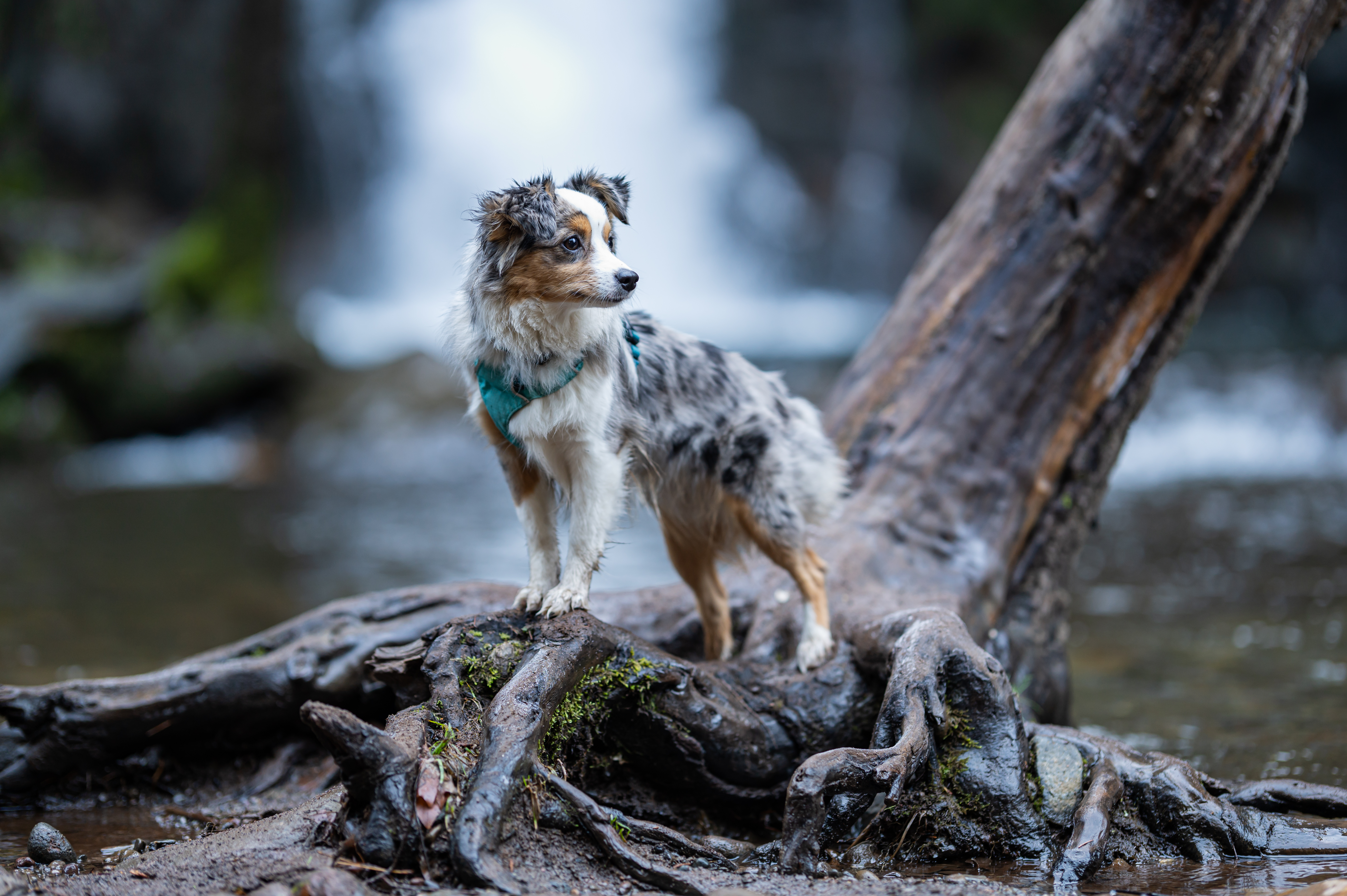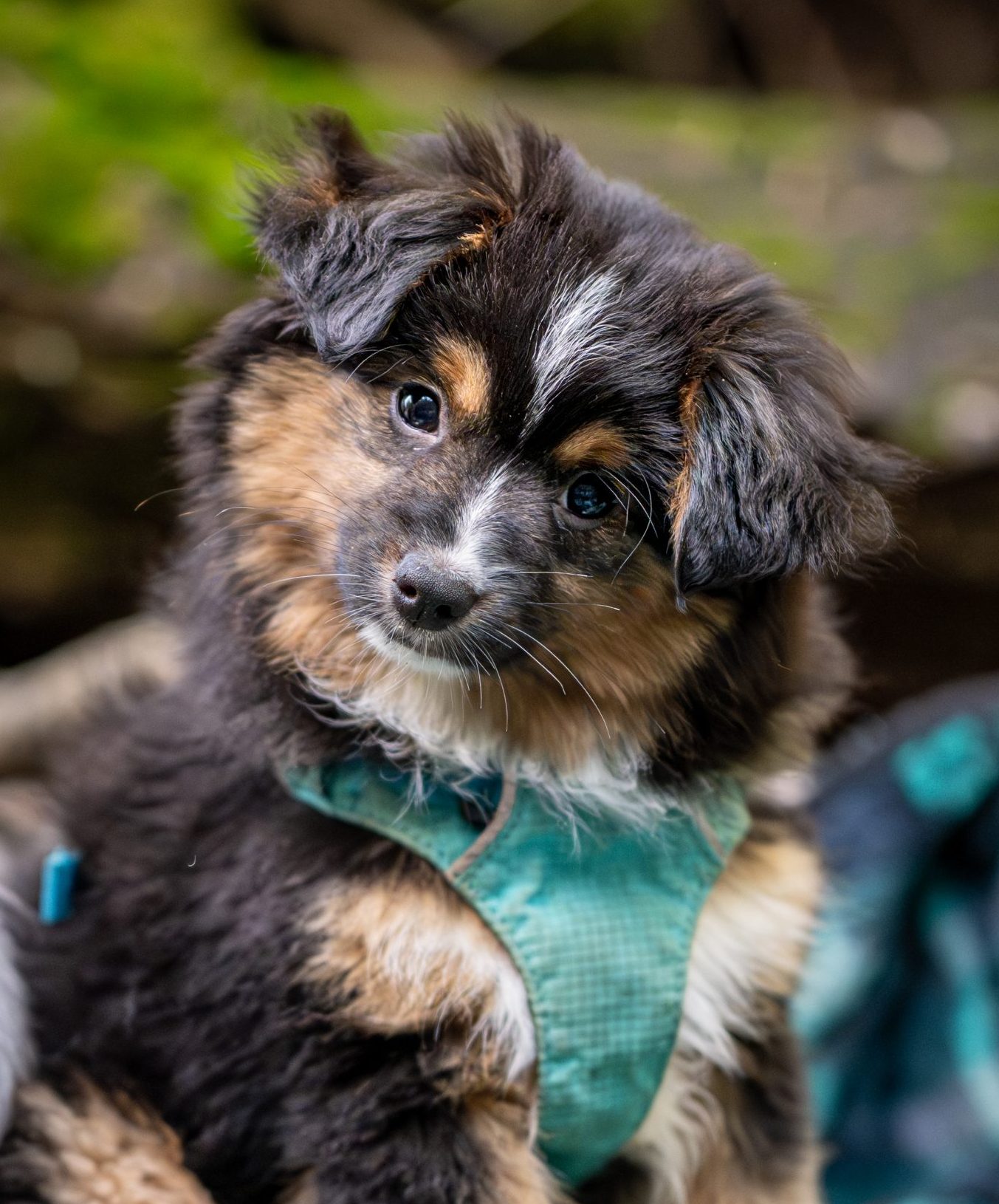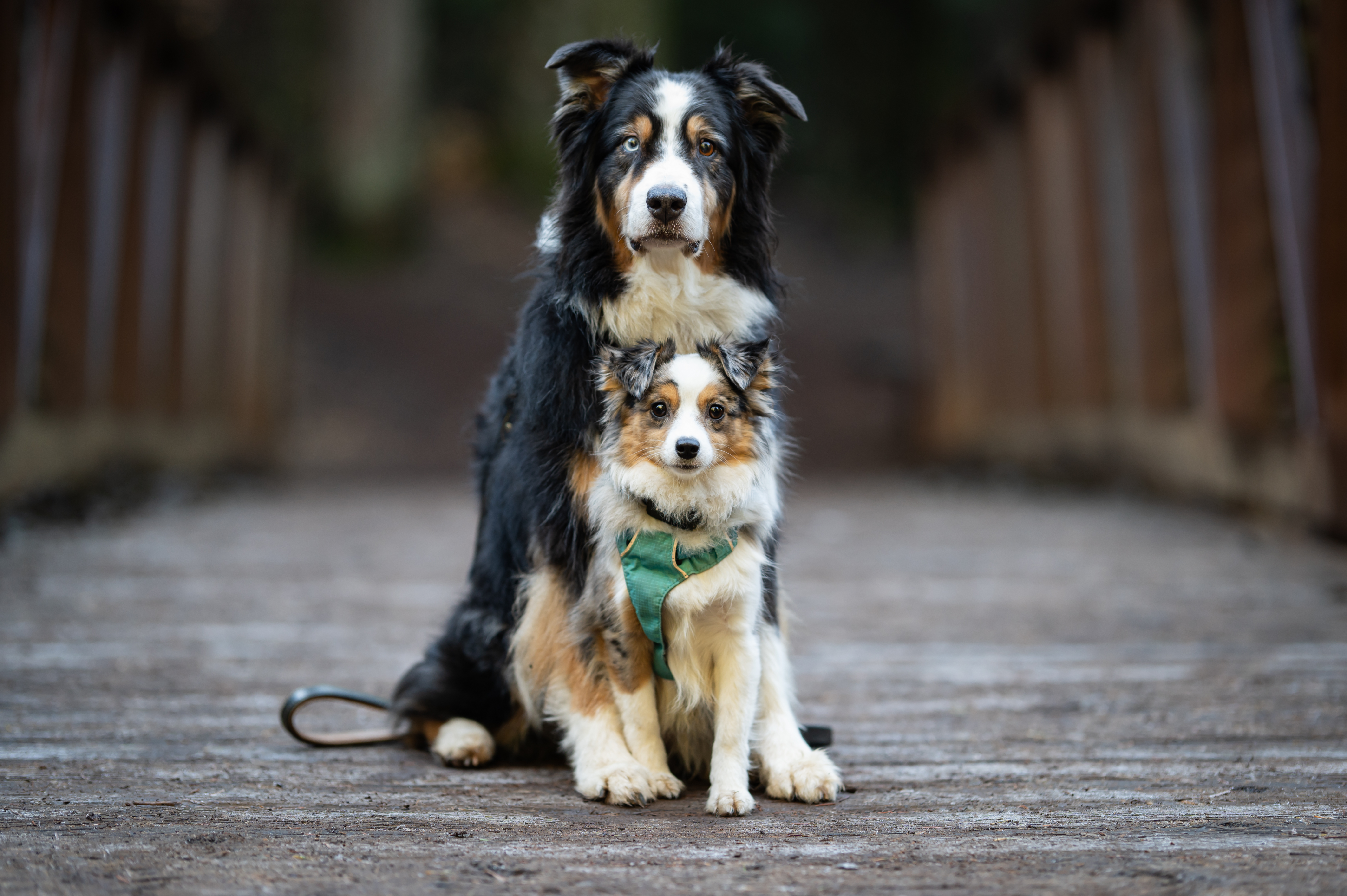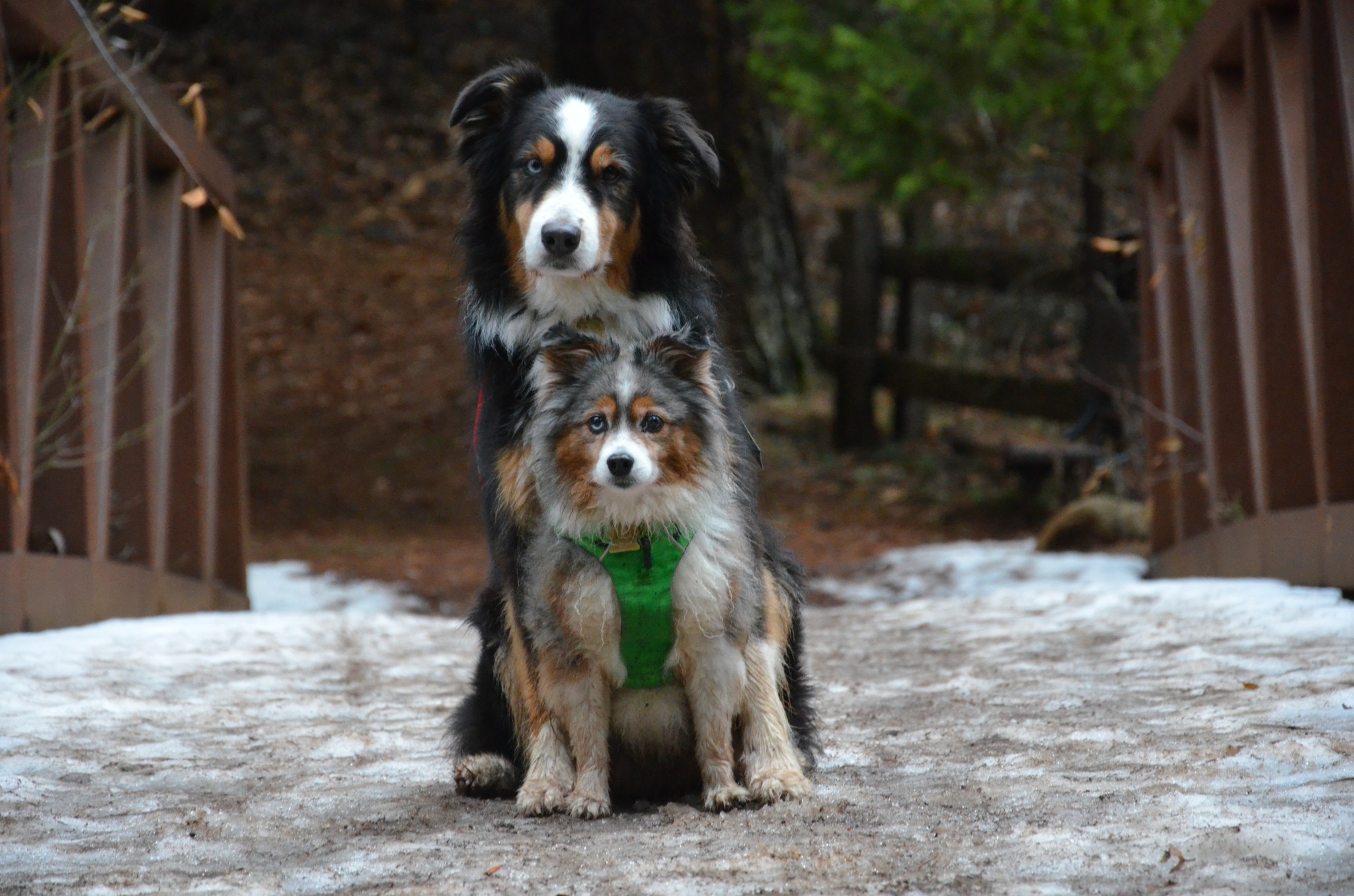Blue Dog Presents
The Miniature American Shepherd

Echo Blue
Faithwalk Echo of My Heart

Delta Black
Faithwalk Standby for Impact
Welcome to the official page of Echo Blue and Delta Black!
I am thrilled to share our journey together as we explore the world of dog sports and nature. Echo and Delta are my amazing Miniature American Shepherds and the heart of everything we do.
Echo is the dog who truly sparked my passion for the recently recognized breed following the passing of my Miniature Australian Shepherd, Maggie. From the moment she joined my life, her intelligence, devotion, and athleticism impressed me, and she quickly became my perfect adventure partner. Delta joined our pack 3 years later and we are excited to watch her grow.
Our future is filled with exciting plans for both personal growth, competition, and endless learning opportunities. Check out each pups personal health profile by clicking the link below. I look forward to sharing the highs, the challenges, and everything in between. Check out our social media platforms for the most up to date adventures!
What makes Miniature American Shepherds so great?
Miniature American Shepherds make great companions due to their affection, intellect, and good temperament around children and other pets when raised along side them.
They are athletic and have a lot of energy; because of this, Miniature American Shepherds need to be given jobs to stay active and prevent boredom. They enjoy going on runs, hikes, or long walks, as well as participating in dog sports where they can compete against other dogs. Because of their smarts and eagerness to please their family members, Miniature American Shepherds are highly trainable and pick up cues quickly.
The Miniature American Shepherd’s double coat is medium in length and comes in a variety of colors, including black, red, and merle. Their fur does shed and can become matted, so this breed has some moderate grooming requirements.
Miniature American Shepherd vs. Miniature Australian Shepherd vs. Australian Shepherd
What’s the difference?


The debate between the Miniature American Shepherd (MAS) and the Miniature Australian Shepherd (Mini Aussie) is a heated one, largely because both breeds share the same foundation bloodlines. In fact, the MAS was originally developed from small Australian Shepherds – many of which were already being bred and marketed as Miniature Australian Shepherds.
When the push for recognition began, some Mini Aussies were rebranded as Miniature American Shepherds, while others remained outside of AKC registration under the Mini Aussie name. The truth is, many MAS today can trace their lineage directly back to the Australian Shepherds, meaning there is significant overlap in genetics. Some MAS breeders even continue to introduce Australian Shepherd bloodlines to maintain structure, temperament, and working ability. This has led to controversy, as critics argue that the MAS is simply a rebranded Mini Aussie, with the AKC recognition serving as a way to legitimize the smaller version of the Aussie rather than establish a truly separate breed.
On the other hand, the MAS supporters claim that the breed is being selectively developed for consistency, with a focus on refining type, health, and temperament to fit the new standard. While both sides have valid points, the reality is that the MAS and Mini Aussie remain incredibly similar – not just in appearance, but in genetics as well. The main distinction today comes down to registration: Miniature American Shepherds are recognized by the American Kennel Club (AKC), while Miniature Australian Shepherds continue to be registered through organizations like American Stock Dog Registry (ASDR) and National Stock Dog Registry (NSDR).
So, are they truly different breeds? Or is the MAS simply a selectively bred, AKC – recognized version of the Mini Aussie? That depends on who ask, but the future for our intelligent, driven, and devoted companions may be making a genetic split from its origin lineage.
The MAS had an open stud book since its acceptance into the American Kennel Club (AKC) Foundation Stock Service (FSS) in 2011, allowing dogs from outside the registry – particularly Miniature Australian Shepherds and smaller Australian Shepherds – to be brought into the breed to establish and refine the gene pool. This was crucial in the early years because the MAS originated from Miniature Australian Shepherd lines, and maintaining genetic diversity was a key concern.
However, as of January 1, 2024, the AKC officially closed the MAS stud book. This means that only MAS dogs registered with AKC can be bred within the AKC MAS program – no more Miniature Australian Shepherds or unregistered small Australian Shepherds can be added to the MAS gene pool. The goal of closing the stud book was to solidify the breeds identity and ensure consistency in structure, temperament, and health moving forward.
Impact of the Closed Stud Book
- Genetic Diversity Concerns | With no new bloodlines being introduced from Miniature Australian Shepherds or Australian Shepherds, the MAS gene pool is now limited to the dogs already registered. If breeders don’t carefully manage their breeding programs, there could be an increased risk of genetic bottlenecks and inherited health issues.
- Separation from Miniature Australian Shepherds | Previously, MAS and Mini Aussie breeders could swap dogs between registries to enhance their programs. Now, AKC MAS breeders must work strictly within their own gene pool, while Mini Aussie breeders (who typically register with ASDR, NSDR, or IMASC) can still incorporate MAS lines. This could lead to further divergence between the two breeds over time.
- Breed Consistency vs. Loss of Working Heritage | Supporters of the closed stud book argue that it will help solidify the MAS as a distinct breed with more predictable structure and temperament. However, some working-line enthusiasts worry that limiting outside bloodlines could weaken the breed’s versatility, particularly in herding ability and drive.
- Breeding Challenges | Some breeders who relied on Mini Aussie lines for type, temperament, or genetic diversity may now find it harder to match quality breeding pairs. This could lead to increased use of linebreeding within MAS programs, which requires careful genetic management to limit health issues.
Ultimately, the long term success of the MAS will depend on how well breeders maintain genetic diversity within the closed registry. Careful breeding practices, genetic and disorder testing, and responsible selection will be essential to ensuring the MAS remains a healthy, well balanced breed for years to come.